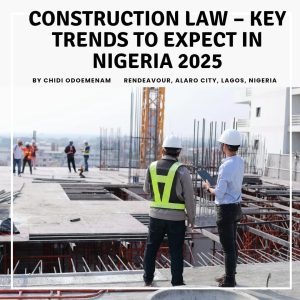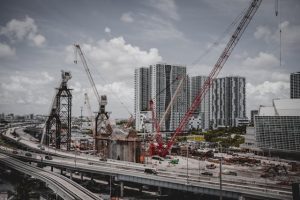What do the new Amendments to the Egyptian Law mean for construction disputes in Egypt?
Dr Engy Serag, Executive Director-Contracts and Claims, Orascom Construction/ Adjunct Faculty, Construction Engineering Department, The American University In Cairo- Egypt
On August 15, 2021, Egypt’s House of Representatives issued Law 137/2021 to amend Law 48/1979. The Amendments:
- grant the Supreme Constitutional Court (SCC) powers to revise rulings/decisions of International institutions and foreign courts if rendered against the Egyptian state and
- give the prime minister the right to refer such rulings/decisions to the SCC to review their legality and ignore any that affect the constitution (the “Law”).
Several legal commentators are of the view that this Law does not intend by any means to affect investments in Egypt but rather to protect them. It has been stated in many press articles referring to the members of the Parliament that the aim of such amendments is to protect national security of Egypt. Ibrahim El-Heneidi, the chair of the House’s Legislative and Constitutional Affairs Committee, stated that the amendments are meant to protect Egypt’s economy. “The two new articles will give the SCC authority to revise these rulings, investigate their legitimacy, and see whether they go in line with the constitution”.
Also, Ayman Abul-Ela, deputy chairman of the House’s Human Rights Committee, said “the two amendments to the SCC law do not mean that Egypt aims to ignore international rulings or agreements it has ratified. […] Egypt is keen on implementing all international agreements and rulings, but at the same time it is also keen to put its own constitution above all international rulings and foreign agreements.” He also stated that “Switzerland refused to implement several international rulings which negatively affected its national interests, deciding that its own constitution and courts have the upper hand.”
Indeed, the phrase “foreign arbitral awards” which was initially featured in the draft Law was removed and was never included in the final enacted version of the Law. However, in my viewpoint, there will still be an indirect impact on arbitration. For instance, in case of annulment of arbitral awards, the court examining the annulment plea will not only consider reasons set out under article 53 of the Arbitration Law 27/ 1994, but might also take into consideration the two above amendments when scrutinizing arbitral awards rendered against Egypt from the spectrum of public policy.
Had the new Amendments included arbitral awards, they would have constituted an infringement by Egypt of its obligations under the New York Convention on the Recognition and Enforcement of Foreign Arbitral Awards (NYC) which Egypt ratified without reservation in 1959. Such inclusion would have constituted a violation of the “non-discrimination rule” under Article III NYC as it would have added another burden for the enforcement of international arbitral awards. However, the fact that the Annulment court may take into consideration the new amendments when scrutinizing the conformity of the award to public policy would not, in my view, constitute a violation of the NYC, since Article V(2)(b) of the NYC grants national courts the right to refuse recognition or enforcement of arbitral awards that are contrary to public policy.
In August 2021, the Cairo Regional Centre for International and Commercial Arbitration (CRCICA- which enjoys the status of an international organization) issued its Dispute Board Rules aiming to improve the dispute resolution process and encourage local and international parties to refer to dispute boards as a fast and effective dispute resolution mechanism. The amendments introduced by the Law referred to above would not extend to DAB decisions rendered under the auspices of the CRCICA since DAB Decisions are of a contractual nature and can only be enforced either voluntarily, or if they are confirmed by arbitral awards which, as mentioned earlier, fall out of the scope of this Law.
Therefore, parties to construction projects, whether local or international, should not be discouraged to refer to the CRCICA Dispute Board or to dispute boards in general. By and large, the Egyptian Parliament has rightfully vacated the amendments in the Law from including “foreign arbitration awards”. Otherwise, the investors would have been intimidated from investing in construction projects in Egypt and the investment climate would have been affected in general.
Disclaimer:
“The above article represents solely the author’s viewpoint and doesn’t reflect any of the organizations where the author is employed/affiliated”


















